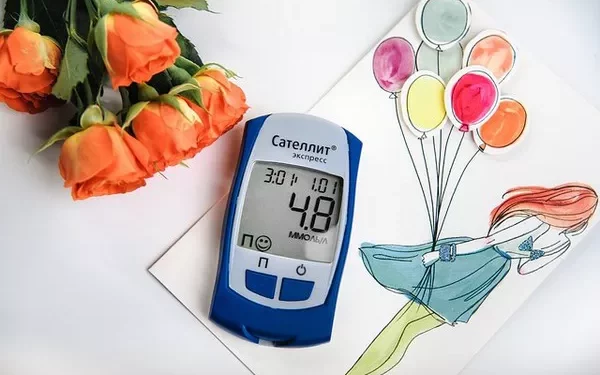Diabetes is a chronic metabolic disorder characterized by elevated blood glucose levels due to insufficient insulin production or ineffective insulin utilization. Maintaining blood sugar within a target range is crucial for preventing long-term complications, but many people wonder: What constitutes a high glucose level in diabetes? Understanding the thresholds for hyperglycemia, its causes, symptoms, and management strategies is essential for people with diabetes and those at risk.
Defining High Blood Glucose Levels
Blood glucose levels vary throughout the day depending on food intake, physical activity, and overall metabolic health. In individuals without diabetes, fasting blood glucose typically ranges between 70–99 mg/dL (3.9–5.5 mmol/L), while postprandial (after eating) levels remain below 140 mg/dL (7.8 mmol/L).
For individuals with diabetes, blood glucose levels tend to run higher due to impaired insulin function. According to the American Diabetes Association (ADA) and the World Health Organization (WHO), the following thresholds define high blood glucose levels in people with diabetes:
- Fasting Blood Glucose (FBG): ≥126 mg/dL (7.0 mmol/L)
- Postprandial (2-hour after eating) Blood Glucose: ≥180 mg/dL (10.0 mmol/L)
- Random Blood Glucose: ≥200 mg/dL (11.1 mmol/L)
A blood glucose level exceeding these thresholds is considered hyperglycemia, which, if persistent, can lead to serious complications.
What Causes High Blood Glucose in Diabetes?
Several factors contribute to elevated blood sugar levels in individuals with diabetes. Understanding these triggers can help in preventing dangerous glucose fluctuations.
1. Insufficient Insulin or Insulin Resistance
In type 1 diabetes, the pancreas produces little to no insulin, causing glucose to accumulate in the bloodstream.
In type 2 diabetes, the body becomes resistant to insulin, making it less effective at regulating blood sugar.
2. Excessive Carbohydrate Intake
Carbohydrates directly affect blood glucose levels. Consuming high-glycemic foods such as white bread, sugary drinks, and processed snacks can lead to sharp blood sugar spikes.
3. Physical Inactivity
Regular exercise helps lower blood sugar by increasing insulin sensitivity and promoting glucose uptake by muscles. Lack of physical activity can lead to persistently high blood sugar.
4. Stress and Illness
Physical and emotional stress triggers the release of hormones like cortisol and adrenaline, which can cause insulin resistance and elevate blood glucose levels.
5. Medications and Poor Adherence to Treatment
Skipping insulin doses, missing oral medications, or taking medications incorrectly can result in uncontrolled blood sugar. Certain drugs, such as corticosteroids, can also contribute to hyperglycemia.
6. Hormonal Changes
Hormonal fluctuations due to menstruation, pregnancy (gestational diabetes), or conditions like Cushing’s syndrome can impact blood sugar regulation.
Symptoms of High Blood Sugar (Hyperglycemia)
Recognizing the signs of high blood glucose levels is crucial for timely intervention. Common symptoms include:
- Increased thirst (polydipsia)
- Frequent urination (polyuria)
- Blurred vision
- Fatigue
- Headaches
- Dry mouth
- Slow-healing wounds
- Unexplained weight loss (more common in type 1 diabetes)
Severe hyperglycemia can lead to diabetic ketoacidosis (DKA) in type 1 diabetes and hyperosmolar hyperglycemic state (HHS) in type 2 diabetes, both of which require emergency medical attention.
Complications of Chronic High Blood Glucose
Uncontrolled hyperglycemia over time can result in serious health issues, including:
1. Cardiovascular Disease
High blood sugar damages blood vessels, increasing the risk of heart attacks, strokes, and hypertension.
2. Diabetic Neuropathy
Prolonged hyperglycemia affects nerve function, leading to numbness, tingling, and pain, particularly in the feet and hands.
3. Diabetic Retinopathy
Elevated blood sugar damages the blood vessels in the retina, potentially causing vision loss.
4. Kidney Disease (Diabetic Nephropathy)
Excess glucose can impair kidney function, leading to chronic kidney disease and, in severe cases, kidney failure.
5. Foot Ulcers and Infections
Poor circulation and nerve damage increase the risk of foot ulcers, which can lead to amputations if not properly managed.
Managing High Blood Glucose Levels
Preventing and managing hyperglycemia requires a combination of lifestyle changes, medication adherence, and regular monitoring.
1. Follow a Diabetes-Friendly Diet
- Focus on low-glycemic index foods like whole grains, legumes, non-starchy vegetables, and lean proteins.
- Limit processed sugars and refined carbohydrates.
- Practice portion control and avoid overeating.
2. Exercise Regularly
- Engage in at least 150 minutes of moderate-intensity exercise per week.
- Include strength training to improve insulin sensitivity.
- Be mindful of exercise-induced blood sugar fluctuations and adjust insulin or carbohydrate intake accordingly.
3. Monitor Blood Glucose Levels
- Use a continuous glucose monitor (CGM) or a blood glucose meter to track sugar levels.
- Keep a glucose log to identify patterns and triggers.
- Adjust medications and diet based on readings.
4. Take Medications as Prescribed
- Insulin therapy may be required for type 1 diabetes and some cases of type 2 diabetes.
- Oral medications like metformin, sulfonylureas, and SGLT2 inhibitors help manage type 2 diabetes.
- Consult a healthcare provider before adjusting medication dosages.
5. Manage Stress and Sleep
- Practice stress reduction techniques like meditation, yoga, or deep breathing exercises.
- Ensure 7–9 hours of quality sleep per night, as poor sleep can affect blood sugar control.
6. Stay Hydrated
Drinking enough water helps flush out excess glucose through urine and prevents dehydration, which can worsen hyperglycemia.
When to Seek Medical Help
Immediate medical attention is necessary if you experience:
- Persistent blood glucose levels above 300 mg/dL (16.7 mmol/L)
- Symptoms of diabetic ketoacidosis (DKA), such as nausea, vomiting, fruity breath, or confusion
- Signs of hyperosmolar hyperglycemic state (HHS), including extreme dehydration and altered mental state
Conclusion
A high glucose level for diabetes typically starts at 126 mg/dL (7.0 mmol/L) fasting and 180 mg/dL (10.0 mmol/L) postprandial, with persistent hyperglycemia posing serious health risks. Effective management involves dietary modifications, physical activity, medication adherence, and regular monitoring. Understanding the causes, symptoms, and long-term consequences of high blood sugar can empower individuals to take control of their health and prevent complications. If blood sugar levels remain high despite lifestyle adjustments, consulting a healthcare provider is essential for personalized treatment strategies.
Related topics:
What’s Normal Blood Sugar Levels for Prediabetes



























